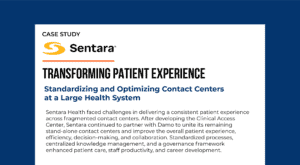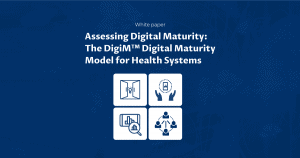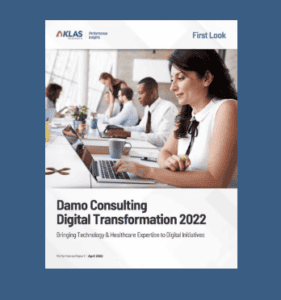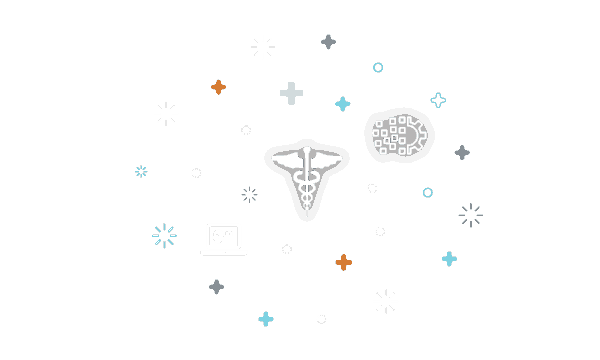How Providence is Designing the Future of Healthcare with AI Beyond Automation

In a recent episode of The Big Unlock podcast, Sara Vaezy, Chief Transformation Officer at Providence, joined hosts Rohit Mahajan and Ritu M. Uberoy to discuss what it takes to design truly AI-native healthcare. With a career spanning healthcare policy, consulting, and digital innovation, Sara offered a candid and nuanced view of how Providence is leveraging responsible AI, reimagining care workflows, and incubating tech-driven solutions to meet the evolving needs of patients and caregivers.
Listen to the full conversation
Rethinking Consumer Experience: Frictionless, Personalized, Proactive
Providence’s digital transformation efforts are centered on improving both patient and caregiver experiences by eliminating friction, enhancing personalization, and enabling proactive engagement.
“We really need to make finding our services and then transacting with us easier,” Sara noted. Whether it’s booking appointments, accessing financial counseling, or simply creating an account, patients should face minimal barriers. One of Providence’s priorities is enabling online scheduling for any bookable service—an effort aimed at meeting modern consumer expectations.
At the core of this strategy is personalization. Providence serves over five million patients annually across seven states, each with diverse needs and expectations. Sara emphasized that a one-size-fits-all approach no longer works. “Each person is different,” she said. “We need to recognize how important it is to speak to people in a way that keeps them engaged.”
Message Deflection Through Conversational AI
A key initiative that Sara highlighted is Providence’s use of conversational AI to deflect incoming messages that would otherwise burden physicians’ inboxes. The health system receives 6–7 million patient-generated messages annually, most of which are routed to physicians’ in-baskets.
Instead of optimizing around managing these messages, Sara and her team took a step back to ask: Why are patients sending these messages in the first place? What they found was that patients often couldn’t find the information they needed or complete basic tasks like booking appointments or understanding bills. Providence built a conversational and navigation platform to help patients resolve these issues in real time—without involving a physician.
This upstream solution has resulted in a 30% deflection rate, and Providence aims to deflect 2 million messages annually in the next few years. “It helps our patients get their needs met immediately, as opposed to having to wait 24 to 48 hours for a response,” said Sara. The success of this approach lies in combining AI agents with thoughtful product development, not simply layering on features.
Building a Digital Workforce: It’s Not Just About Automation
Sara cautioned against narrow interpretations of AI as merely a substitute for human labor. “With AI agents, it’s not just about automating the dull work,” she said. “It’s about doing things better.” Rather than automating low-value tasks for the sake of efficiency, Providence focuses on redesigning entire workflows for higher impact. “We don’t want to just automate crap,” Vaezy added bluntly. “We want to rethink processes from the ground up.”
This includes developing agents that can do things humans cannot—like analyzing massive datasets to identify the right individuals for targeted care outreach. “No human can parse through 10 or 20 million individuals to find the 1,000 people who need specific care,” she said. “AI can do that, and that’s where we see real value.”
Startup Incubation: DexCare and Praia Health
Providence has not just adopted new technologies; it has built them. Sara shared how the organization incubated and spun off two companies to address gaps in healthcare infrastructure.
DexCare, launched in 2021, focuses on supply-demand matching for on-demand care—ensuring patients find the right care, at the right time, in the right place. It helps patients discover appropriate services while balancing capacity on the provider side.
In 2024, Praia Health was launched to drive engagement through personalization. The platform helps deliver individualized digital experiences based on patient needs, preferences, and behaviors, rather than offering generic interactions.
These startups, both backed by venture capital, now operate independently while continuing to power Providence’s consumer-facing services. Vaezy credited earlier investments and organizational foresight during more financially stable times for enabling these ventures.
Designing for the Future: AI-Native Thinking
Looking ahead, Sara believes the next wave of innovation will require deeper integration of AI into business processes—moving from substitution to reinvention. “We’ll start to see more focus on what it looks like when something becomes AI-native, versus just being a tech overlay,” she predicted. For example, while ambient listening tools in clinical settings are generating excitement, Sara emphasized the importance of rethinking entire workflows to support these tools, rather than simply inserting them into outdated systems.
Another emerging area is observability—how organizations track, validate, and monitor AI systems in real-time to ensure safety and performance. “If you’re trying to run an unsupervised, non-deterministic model, you better have systems in place to make sure it’s not going rogue,” she said.
Responsible AI and Industry Accountability
Despite the excitement around generative AI, Sara urged caution and accountability. With increasing autonomy and the rise of AI agents, she emphasized the need for human-centered governance frameworks.
“It’s almost like fighting gravity,” she said. “Our job is to make this transition as responsible, humane, and ethical as possible.” She drew parallels to how consumers once expected to own their data—an ideal that faded in the face of corporate data control. “Let’s not miss the mark again,” she said. “We know this is going to happen. Now we have to ask: How do we do it right?”
Final Thoughts
Sara Vaezy’s insights offer a playbook for health systems navigating the shift to AI-native care delivery. Providence’s approach—centered on human needs, supported by intelligent systems, and grounded in ethical foresight—offers a compelling model for transformation.
By deflecting physician inbox overload, incubating purpose-built startups, and redesigning workflows with digital agents, Providence is not just implementing AI—it is rearchitecting healthcare delivery for the future.
As Sara said, “It’s not about reducing messages. It’s about the full experience.” In a rapidly evolving healthcare landscape, that mindset may be the key to unlocking AI’s true potential.
A Pediatric-Centric Approach to AI
Pediatric healthcare comes with its own unique challenges—fewer available data points, smaller population sizes, and higher sensitivities around communication and consent. This makes the responsible use of AI even more critical.
Dr. Morse noted that solutions must be designed with children and families in mind, not simply adapted from adult care settings. Whether deploying ambient tools, summarizing clinical notes, or streamlining administrative workflows, every use case must prioritize trust, safety, and patient experience.





